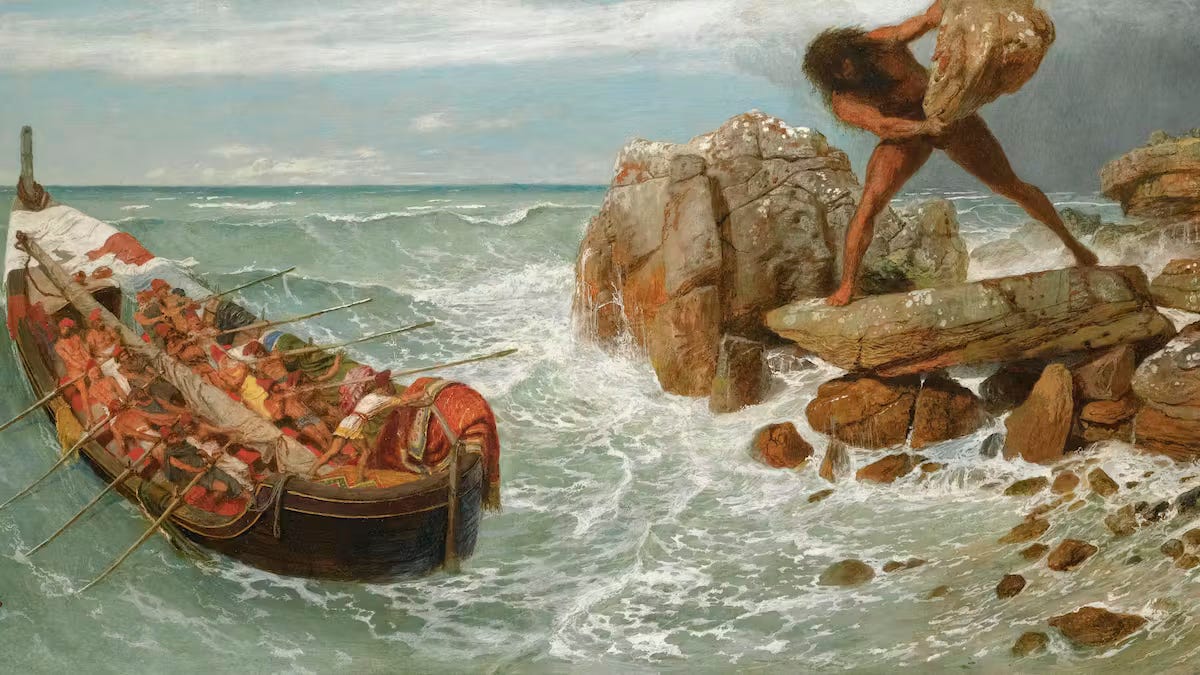Dear Classical Wisdom Kids,
It’s been a very exciting week. We flew from Rhodes to the city named after the ancient Greek Goddess, Athena: Athens!
Frida and Owly will definitely have to tell you the story of why Athens is named Athens... but this week they are super busy. That’s because Frida is going to her special Ancient Greek camp.
You see, for the last six months Frida has been taking lessons in ancient Greek with Elliniki Agogi, an absolutely wonderful ancient Greek school based in Athens. It’s been as part of a pilot program for English speaking kids - something which I will certainly tell you more about once it’s ready!
In the meantime, I thought it would be fun to introduce a few of my favorite ancient Greek terms. It’s amazing (to me at least) how a single word can be a window into a whole culture. This is especially true for terms that capture something really special and important - and as you can probably imagine, there are plenty of these in ancient Greek.
I put four below, but they are (almost) all easy to pronounce and understand.
A fun project is to think of modern day examples of these terms... Are they good concepts? Do you think we should strive for them? What can we learn from them?
Enjoy!
Ἔρρωσο,
(Erosso means goodbye/strength in ancient Greek)
Anya Leonard
Founder and Director
Classical Wisdom and Classical Wisdom Kids
Four Fun Ancient Greek Terms for Kids:
Arete (Greek: ἀρετή)
Arete means “excellence of any kind”... it may also mean “moral virtue”. In its earliest appearance in Greek, Arete also includes the fulfillment of purpose or function: the act of living up to one’s full potential. The person of Arete is of the highest effectiveness; they use all their faculties—strength, bravery, and wit—to achieve real results.
The most famous and oldest surviving story of Arete is the story of Heracles at the Crossroads. When he was younger, the Greek hero had two women approach him, one beautiful and the other plain. The beautiful one told Heracles that if he follows her, he will have a pleasurable and comfortable life. The plain woman, on the other hand, offered a severe and at times difficult life, but one that is honorable and will result in respect from all that know him.

Heracles followed the second woman, who was Arete.
Xenia (Greek: ξενία)
Xenia means “guest-friendship” and is the concept of hospitality. It includes the generosity and courtesy shown to those who are far from home, offering them safety and kindness. It was a very important custom. So much so, in fact, that the patron was Zeus himself!
This law included many important rules for both the guest and the host, including gift giving, respect and protection. It is why even today the Greeks are so friendly to foreigners. The opposite of this concept is Xenophobia, or fear of foreigners.
Nostos (Greek: νόστος)
Nostos is essentially the idea of going home. It was used in ancient stories where an epic hero returns home by sea because it was very dangerous to travel and so heroic to make it back! Nostos is extremely important in Homer’s The Odyssey, where the main hero Odysseus tries to return home after battling in the Trojan War.
FYI: The word nostalgia was coined in 1688 by Johannes Hofer (1669-1752), a Swiss medical student. It uses Nostos along with another Greek root, άλγος or algos, meaning pain, to describe the psychological feeling of longing for the past.
And finally.... One of the best ancient greek terms:
Eudaimonia (Greek: εὐδαιμονία) (pronounced You-die-mon-e-a)
Eudaimonia is regularly translated as happiness or welfare; however, “human flourishing or prosperity” and “blessedness” are more accurate. In Aristotle’s works, eudaimonia was used as the term for the highest human good, and so it is the aim of a lot of philosophy to think about (and also experience) what it really is, and how it can be achieved.
What do you think Eudaimonia is? How can you achieve it?
Let us know below which was your favorite word… and how you can bring them back to modern life!





